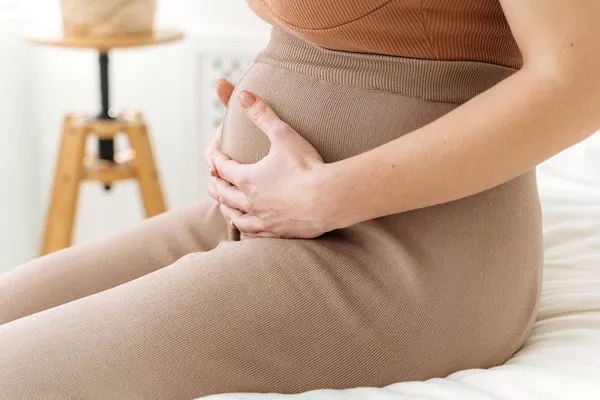Pregnancy is a remarkable journey, but it can also bring about numerous changes and challenges to a woman’s body. Among the many discomforts that pregnant women may experience, stomach cramps are a common concern. While these cramps can be worrying, they are typically benign and often arise due to the body’s adjustments to accommodate the growing fetus. In this article, we will explore the various causes of stomach cramps during pregnancy and offer guidance on how to manage and alleviate this discomfort.
Causes of Stomach Cramps During Pregnancy
Uterine Growth: As the pregnancy progresses, the uterus expands to accommodate the developing baby. This stretching of the uterine muscles can lead to mild to moderate cramping, especially during the first and second trimesters. These cramps are usually experienced as a dull, achy sensation in the lower abdomen.
Round Ligament Pain: The round ligaments, which support the uterus, stretch and thicken as the uterus grows. This stretching can lead to sharp, shooting pains or cramps in the lower abdominal area, especially when changing positions or with sudden movements. Round ligament pain is common in the second trimester.
Gas and Constipation: Hormonal changes during pregnancy can slow down the digestive system, leading to gas and constipation. These issues can cause discomfort and cramping sensations in the stomach and lower abdomen.
Braxton-Hicks Contractions: These contractions, often referred to as “practice contractions,” are usually harmless and can occur as early as the second trimester. They involve the tightening of the uterine muscles, causing temporary cramps or discomfort. Braxton-Hicks contractions are typically irregular and do not progress into labor.
Gastrointestinal Issues: Nausea, heartburn, and indigestion are common pregnancy-related digestive problems. These issues can lead to stomach discomfort and cramping, especially after eating.
Dehydration: Insufficient fluid intake can lead to dehydration, which can cause muscle cramps, including those in the stomach. It is essential to stay adequately hydrated during pregnancy to prevent this discomfort.
Infections and UTIs: In some cases, stomach cramps during pregnancy may be caused by urinary tract infections (UTIs) or other infections. These cramps may be accompanied by other symptoms like pain during urination, fever, and unusual vaginal discharge. UTIs can be serious during pregnancy and should be promptly treated.
Ectopic Pregnancy: While less common, stomach cramps can be a sign of a potentially dangerous condition known as an ectopic pregnancy, where the fertilized egg implants outside the uterus, typically in the fallopian tube. Ectopic pregnancies can cause severe abdominal pain and require immediate medical attention.
Managing Stomach Cramps During Pregnancy
Dealing with stomach cramps during pregnancy involves understanding the cause of the discomfort and taking appropriate steps to alleviate it. Here are some tips for managing stomach cramps:
Stay Hydrated: Ensure you drink enough water throughout the day to prevent dehydration, which can lead to cramps. Aim for at least eight 8-ounce glasses of water daily.
Eat Fiber-Rich Foods: To combat constipation and gas, include plenty of fiber in your diet through fruits, vegetables, and whole grains.
Take it Easy: Rest and avoid sudden movements or activities that may trigger round ligament pain. Try to change positions slowly to minimize discomfort.
Wear a Supportive Belly Band: A supportive belly band can help reduce the strain on your abdominal muscles and provide relief from cramps.
Practice Gentle Exercises: Engage in gentle exercises like prenatal yoga or walking to maintain muscle tone and flexibility, which can alleviate cramping.
Heat and Warm Baths: Applying a warm compress or taking a warm bath can soothe muscle cramps and provide relief.
Over-the-Counter Medications: Consult your healthcare provider before taking any over-the-counter medications. Some may be safe during pregnancy, but it’s essential to get professional advice.
Seek Medical Attention: If you experience severe or persistent cramps, especially if they are accompanied by bleeding, fever, chills, or unusual vaginal discharge, consult your healthcare provider promptly to rule out serious conditions like infections or ectopic pregnancies.
In conclusion, stomach cramps during pregnancy are often a normal part of the journey and are primarily due to the body adapting to the growing fetus. However, it’s crucial to pay attention to your body and communicate any concerns or persistent discomfort with your healthcare provider. By understanding the causes and employing proper management techniques, you can navigate this aspect of pregnancy with greater ease and confidence, ensuring a smoother path to welcoming your new arrival.


